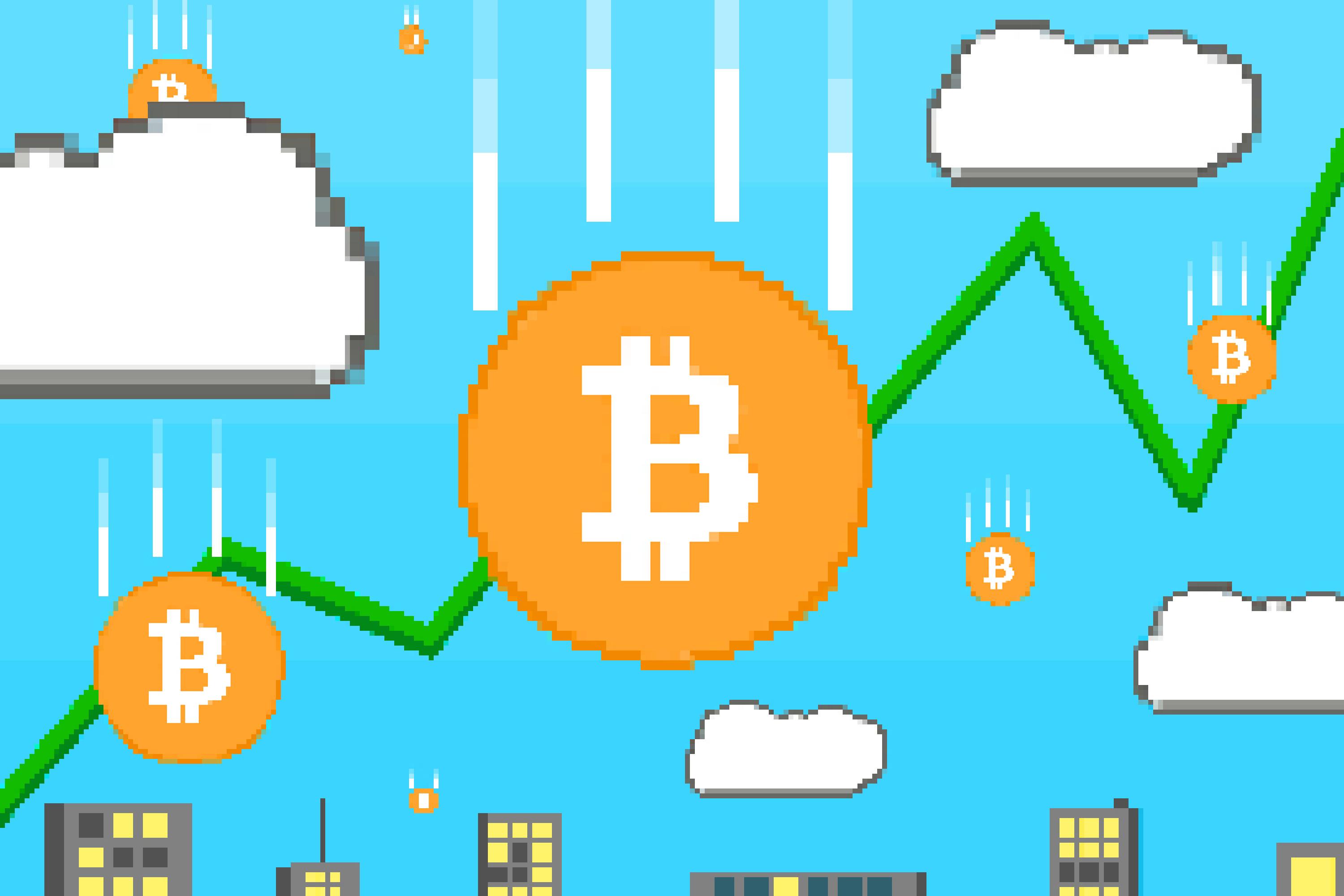
Over the past few years, the cryptocurrency craze has slowly built steam, and now, interest in bitcoin has reached a fever pitch. Over the past month, the virtual currency’s value has been dramatically climbing, and plenty of people are suddenly jumping into the fray, while those who have been holding on to coin since the beginning are wondering if it’s time to cash in. At the same time, there are those cautiously watching from the sidelines, wondering what the bigger impact is going to be. But what everyone is wondering is: Should I buy bitcoin? — Molly McHugh
Anyone care to offer their shortest, explain-it-like-I’m-5 definition of bitcoin?
Michael Baumann: Play money for internet libertarians?
Molly McHugh: When I think of bitcoin, I just picture it as internet poker chips.
Kate Knibbs: A terrific prank from Satoshi Nakamoto.
Alyssa Bereznak: I think it started as a nice idea: decentralized currency that couldn’t be held captive in a dysfunctional regulatory institution. That’s not an accurate definition of bitcoin in its current state, though.
Riley McAtee: Something-something-something blockchain.
Katie Baker: I’ve actually Googled “bitcoin explanation for kids” before and found this, which starts out with a man handing a kid an apple on a park bench (?) and builds to this: “Going through Blizzard is like pulling in Uncle Tommy (a third-party) out of court (did I mention he’s a famous judge?) for all our park bench transactions.”
McHugh: So the idea that there is an online, decentralized currency makes sense to me. I get caught up in the mining aspect …
Baumann: Even the idea that there should be an online, decentralized currency doesn’t make sense. How many of the major political stories of the past decade have been about real-world human suffering caused by greedy people taking advantage of a lack of regulation or lapses in cybersecurity? And the solution is to go more online and less regulated? Of course, I’m probably betraying the bias baked into learning about bitcoin for the first time when it was the Official Currency of the Dark Web and talked up by tech hucksters and Reddit neckbeards.
What are the pros and cons of this system?
McHugh: Bitcoin has a PR problem, but there would be advantages to dealing totally in cryptocurrency.
McAtee: Bitcoin would be my currency of choice if I needed to put a hit on someone.
Victor Luckerson: It’s easy to imagine the arc of bitcoin mirroring the arc of the internet itself: a largely decentralized system championed by a tech-savvy sect as a way to overthrow the powers that be that becomes subsumed into the power structure it was trying to upend. The Outline has a good piece about this.
Bereznak: Right, that Outline story explains that the original pros of the system were that you could purchase things anonymously, that international money transfers would be instant and convenient, and that if one financial institution messed up it didn’t mean we were all screwed.
Baker: That’s well put, Victor. I feel like a lot of the pros of bitcoins that I read about (can’t be seized by a third party like the state, can’t be taxed, can’t be tracked, can’t be stolen, can’t be linked to transaction costs) are the same things that the financial regulatory industry, and also hackers, would love to find ways to put the ixnay on. People talk about how secure they are, but then they talk about losing a scrap of paper with a password on it or a hard drive crashing and the bitcoin disappearing into the void forever.
Knibbs: I know bitcoin has been used in some countries with unstable economies, like Venezuela; I read a Guardian article that described how some Venezuelans were using bitcoin to buy Amazon gift cards to buy necessities because they felt it was more secure than bolivars. In general, though, bitcoin is still wildly unstable, so it really becomes advantageous-ish only if you’re living in economic chaos.
Let’s suppose that bitcoin/digital currency becomes the sole way we make transactions, and physical currency dies. What does that set in motion?
Knibbs: I do NOT see that happening.
Baumann: Inflation has been absolutely wild, which means that if bitcoin ever does become any kind of global financial standard, people who were very online at the first half of this decade will be like the oil barons of the future. And what happens when it crashes? People don’t try to edge the government out of any kind of power structure unless they think they can insert themselves at the top of the chain, into the void government vacated. It’s just this unregulated, wildly inflationary currency set up in a market newly devoid of government controls, with a few early adopters at the top. It feels like the ruble in 1993.
Knibbs: I’m assuming that in this scenario the Big War has already happened, and the main survivors are the super rich libertarians who had bunkers built in New Zealand, in which case, yes, they will definitely rule the world.
McHugh: Do we think Peter Thiel is an early bitcoin investor?
Bereznak: He’s an early investor in almost everything. I’m sure he’s got a nice little coin purse going.
Luckerson: If all goes according to plan, the Winklevoss twins will be able to exact their ultimate revenge on Mark Zuckerberg.
Knibbs: The Winkelvii World Order.
McHugh: A government run by the Winklevii and Peter Thiel. That doesn’t seem TOO FAR from what we’ve got now.
Baumann: They’re gonna need a ton of bitcoin to rehire Armie Hammer back for a sequel to The Social Network after Call Me by Your Name.
Do you think there’s still fear over the anonymity aspect? The big fallout for the dark web is a few years behind us now, but clearly an internet-based currency that enables anonymous purchasing comes with its problems. Should we be nervous about that? There’s no regulatory body to trust here, right?
Luckerson: I don’t think anyone cares at all about using bitcoin as an actual currency to execute transactions.
McHugh: I mean, I think law enforcement agencies do.
Knibbs: Yeah, it’s more of an asset — and also, not actually anonymous.
Baker: Agreed, it’s interesting how we’ve skipped over the “using it to buy stuff” part and gone straight to the “derivatives and arbitrage markets” stuff.
Baumann: I wonder if the anonymity of bitcoin is undermined by the fact that if you own any quantity of it, you have to talk nonstop about the weaknesses of fiat currency.
McHugh: Oh, that’s a requirement.
Knibbs: LOL, Baumann.
McHugh: If anyone ever asks if you know what “fiat” means in Latin, they 100 percent own bitcoin.
Knibbs: (Although, isn’t bitcoin fiat currency!?)
McHugh: YES.
Baumann: QUIET, KNIBBS, YOU’RE GONNA GIVE UP THE GAME.
McHugh: Kate is a bitcoin tycoon and has been playing this off very well.
Bereznak: Yes, Kate, tell us how much you cashed in your bitcoin for last week!
Knibbs: $600.
Bereznak: YOU’RE RICH.
Knibbs: But most of my bitcoin is lost because I can’t remember my password and I used my old work email.
McHugh: SAME.
Baker: Matt Levine, who is probably my favorite financial writer, wrote a good thing the other day on the fiat topic: “You could quibble that the dollar’s value is maintained not by collective trust but by the fact that it must be used to pay U.S. taxes, but of course the U.S. tax system, and the U.S. government, and the notion of ‘the U.S.’ in the first place, are all maintained by collective trust.”
Baumann: Well, that’s a terrifying sentence for a bunch of reasons.
Knibbs: This speaks to my 21-year-old self arguing in my dorm room that “money’s just a mass delusion, man.”
McHugh: THAT is what I get to every time I think about bitcoin. “What even IS money, though?”
Baker: Right, like, recently there were stories about doomsday preppers trading in their gold reserves for bitcoin … and while it got me to wondering how bitcoin would even endure in, like, an electromagneticpulsepocalypse, it also made me start wondering about what’s so great about gold, anyhow.
Knibbs: That is a very good point!
McHugh: “What’s so great about gold anyhow?” I’m so glad we got here.
Bereznak: At least gold is shiny and hard and you can make nice things out of it. Can’t make anything pretty with a bitcoin.

This might be getting a little too philosophical, but is there something here about computerization of money and automation of investing that we are resisting?
Baumann: That’s definitely part of my hangup.
Knibbs: Nah, I hate cash. Also, the “money” in my bank account doesn’t physically exist, anyway. I’m hung up because I don’t like making risky investments.
Luckerson: In a perfect world, bitcoin would marry the convenience of online transactions with the anonymity of cash. But again, bitcoin has become too valuable for anyone to care about spending it.
McHugh: … Making it useless. So theoretically, people with bitcoin have a lot of money.
Baumann: What a perfect avatar for modern capitalism.
Baker: I feel like the security of computer systems isn’t up to par with the ideal of how BTC operates, kind of? It’s kind of like economic theory, where nothing is quite as efficient as the equations account for, so then you have to start baking in all sorts of exceptions. Like, this guy lost his bitcoin because someone called Verizon and pretended to be him. And he’s a tech dude!
Should someone buy bitcoin right now? Would you buy bitcoin right now?
Knibbs: I would buy some if I had money to play around with.
Bereznak: I can tell you one thing, people definitely shouldn’t be mortgaging their homes to afford bitcoin. But yes, if I had a Thiel-sized wallet, I would fill it with some bitcoin.
McHugh: Yeah, the security thing is where I get freaked out. I don’t have enough money to take a risk on a volatile market. ALSO, if institutionalized banks can’t keep my money safe I don’t feel overly confident this system will, either.
Luckerson: Invest in index funds.
Baker: If you have a big enough portfolio where you can allocate a portion of your wealth to all-or-nothing type investments where you could conceivably lose everything, I don’t see why you wouldn’t keep an eye on things and buy some whenever there’s the net crash/dip. But, like Alyssa said, you shouldn’t be mortgaging a home to do this.
McHugh: That annoys me, because it seemed like bitcoin was being sold as this way to disrupt who controlled money but it’s still just like, “Here, rich people can do this thing to get richer.” Which, I mean, duh, but it’s still a bummer. Money sucks.
Baker: You just hear so many stories that are reminiscent of previous bubbles — dotcom in the ’90s, real estate 10 years ago — and you hear stories that are so similar. People quitting their jobs to day trade or leveraging themselves to invest. And the other thing that’s difficult is that there’s such little middle ground on this subject. People are either like, “It’s a Ponzi scheme,” or they’re SUCH evangelists. And some really, really, really smart people I know fall in the latter category, so it gives me pause on being skeptical. But I think the current situation — not just bitcoin but all the wacky ICOs that are going on — just has so many warning signs.
Baumann: That’s the thing, like, at some point there’s going to be a run on bitcoin. (Goes back in time to 2005 and says “a run on bitcoin” in a crowded room.) Or maybe they’re up to their necks in bitcoin and are trying to stave off the crash.
McHugh: How many journalists do you think secretly own bitcoin and are trying to spin the news cycle in their favor?
Baumann: Other than Katie?
Bereznak: [Whispers] Knibbs!
Baker: Ha, one of these aforementioned smart people was gonna give me bitcoin as a wedding gift in 2014, when it was, like, $250, and flaked out, and now I want to sue him. I HAVE RECEIPTS!
McAtee: I had a conversation with my roommate around 2013, when bitcoin was around that price, and I was adamant that he shouldn’t touch bitcoin.
McHugh: He hates you.
McAtee: I’m sorry, Ross!
Baker: Knibbs, you don’t have to answer, but did you sell your entire position (that you had access to) or just part of it?
Knibbs: All of it. It wasn’t a lot, and I wanted to buy a plane ticket. I have no regrets.
McHugh: If I could get to my bitcoin, I would sell all of it. Because I hate gambling and I’m a nervous person, and some money is better than no money or more money and worrying constantly.
Baker: Knibbs is using bitcoin the way it was intended, to buy stuff. Although usually “stuff” means “pharmaceuticals on silk road,” so …

